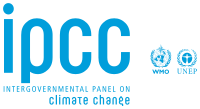
Photo from wikipedia
Abstract Background TMB is a novel predictive biomarker that can identify patients who may benefit from immunotherapy. NSCLC trial data suggest that whole exome sequencing (WES) and panel-sequencing are suitable… Click to show full abstract
Abstract Background TMB is a novel predictive biomarker that can identify patients who may benefit from immunotherapy. NSCLC trial data suggest that whole exome sequencing (WES) and panel-sequencing are suitable to determine TMB, and that centralized and decentralized/lab-developed testing models for panel-based measurements are acceptable. In strategic partnership with the effort led by Friends of Cancer Research, the Quality in Pathology (QuIP) study was designed to analyze performance and specifications of TMB panels in a wet-lab setting. Methods 20 FFPE samples (NSCLC, HNSCC, CRC, including MSI, mutant POLE) that cover the full spectrum of TMB (2 to 200 muts/Mb) were analyzed by 11 pathology centers and 4 assay providers using 6 different major panels. WES data served as reference standard. Each tumor sample was tested > 20 times across several panels and institutions resulting in 580 datasets. Using raw sequencing data, processed file formats, and reported TMB values, we dissected specifications of each panel result, identified panel-specific requirements, and analyzed Pearson correlations of TMB data between assays, labs, and vs WES. Results Each panel had different requirements regarding library preparation (hybridization vs PCR) and input material (range: 20-200 ng). We identified tumor cell content and DNA quality/quantity as crucial preanalytic factors that require integration with coverage data, VAF cut-points, and assay-specific features (eg, molecular barcodes) to obtain reliable TMB results. Control of C>T artifacts was important for assays not using molecular identifiers. Correlations between panel-TMB estimates (R = 0.93 ± 0.1; mean ± sd) and with WES (R > 0.9 for 18 and R > 0.95 for 14 of 20 panel tests) were strong and improved after optimization of pipelines. Conclusion The QuIP study demonstrated that all TMB panels work under real-world conditions and strongly correlate with WES data, with low variability across sites. Further, we identified both common and panel-specific parameters that influence TMB results in daily practice. Recommendations will be provided that support standardization and enable implementation of TMB testing in routine diagnostics. Legal entity responsible for the study The authors. Funding Bristol-Myers Squibb, Roche, Illumina, Thermo Fisher, Neo Oncology, Qiagen. Disclosure A. Stenzinger: Advisory / Consultancy, Speaker Bureau / Expert testimony: Bristol-Myers Squibb; Advisory / Consultancy, Speaker Bureau / Expert testimony: AstraZeneca; Advisory / Consultancy, Speaker Bureau / Expert testimony: Bayer; Advisory / Consultancy, Speaker Bureau / Expert testimony: Novartis; Advisory / Consultancy, Speaker Bureau / Expert testimony: Illumina; Advisory / Consultancy, Speaker Bureau / Expert testimony: Thermo Fisher; Speaker Bureau / Expert testimony: Roche; Speaker Bureau / Expert testimony: Pfizer; Advisory / Consultancy: Seattle Genomics; Speaker Bureau / Expert testimony: MSD. All other authors have declared no conflicts of interest.
Journal Title: Annals of Oncology
Year Published: 2019
Link to full text (if available)
Share on Social Media: Sign Up to like & get
recommendations!